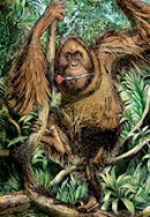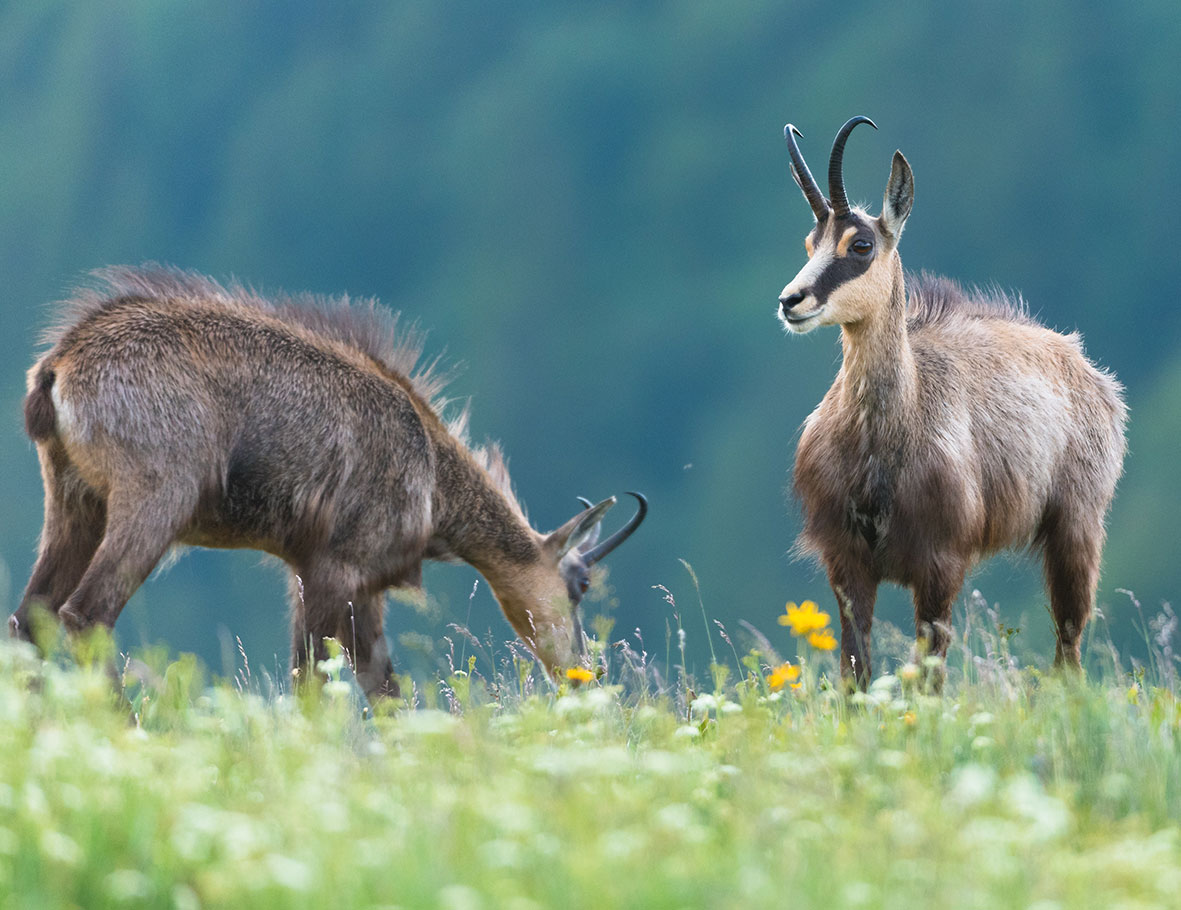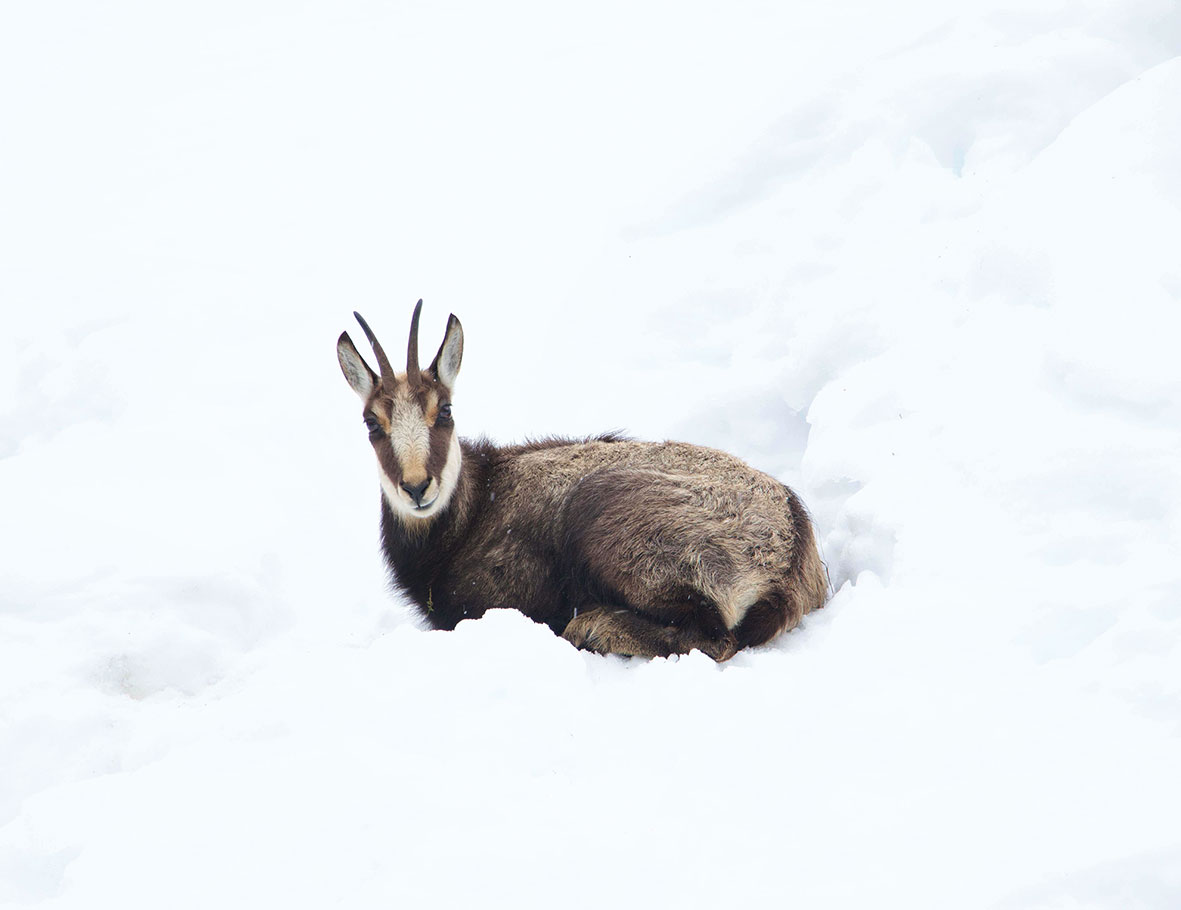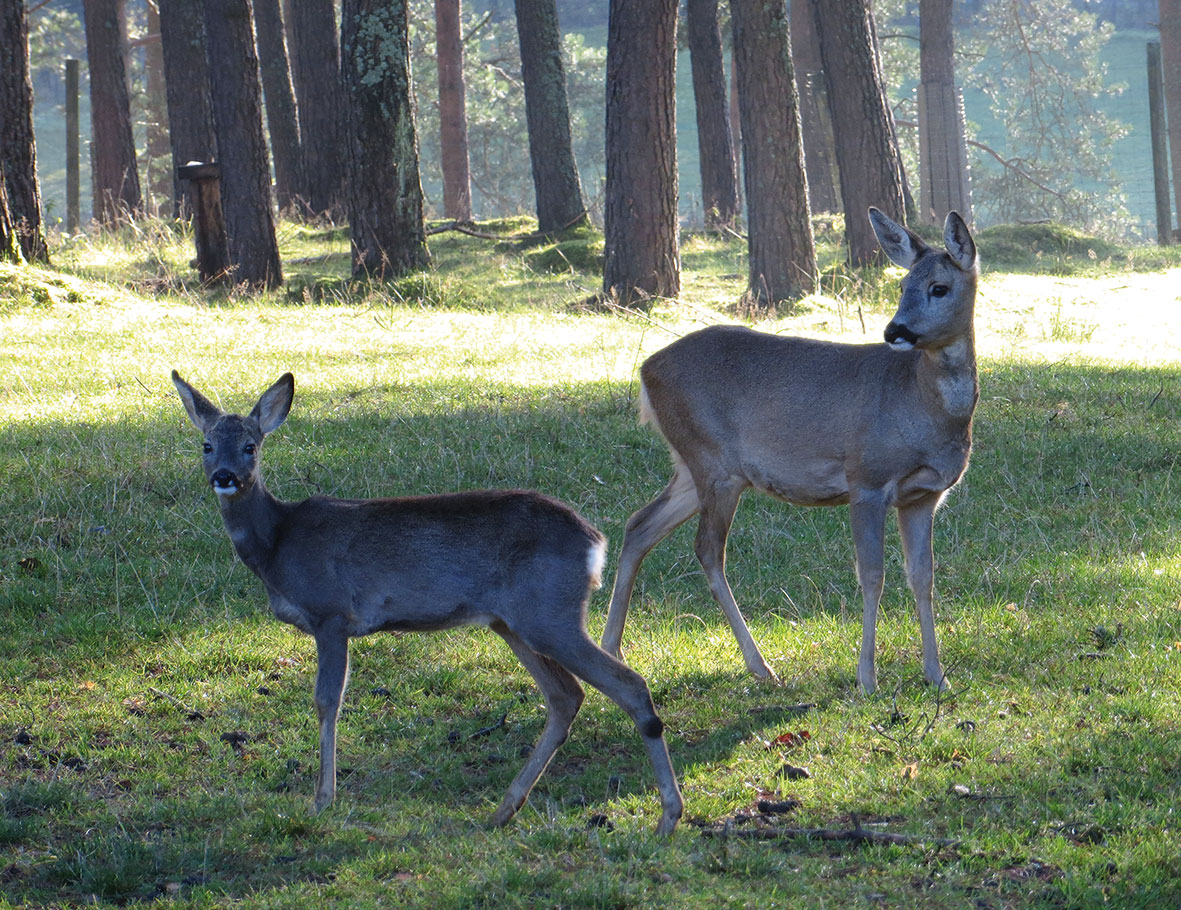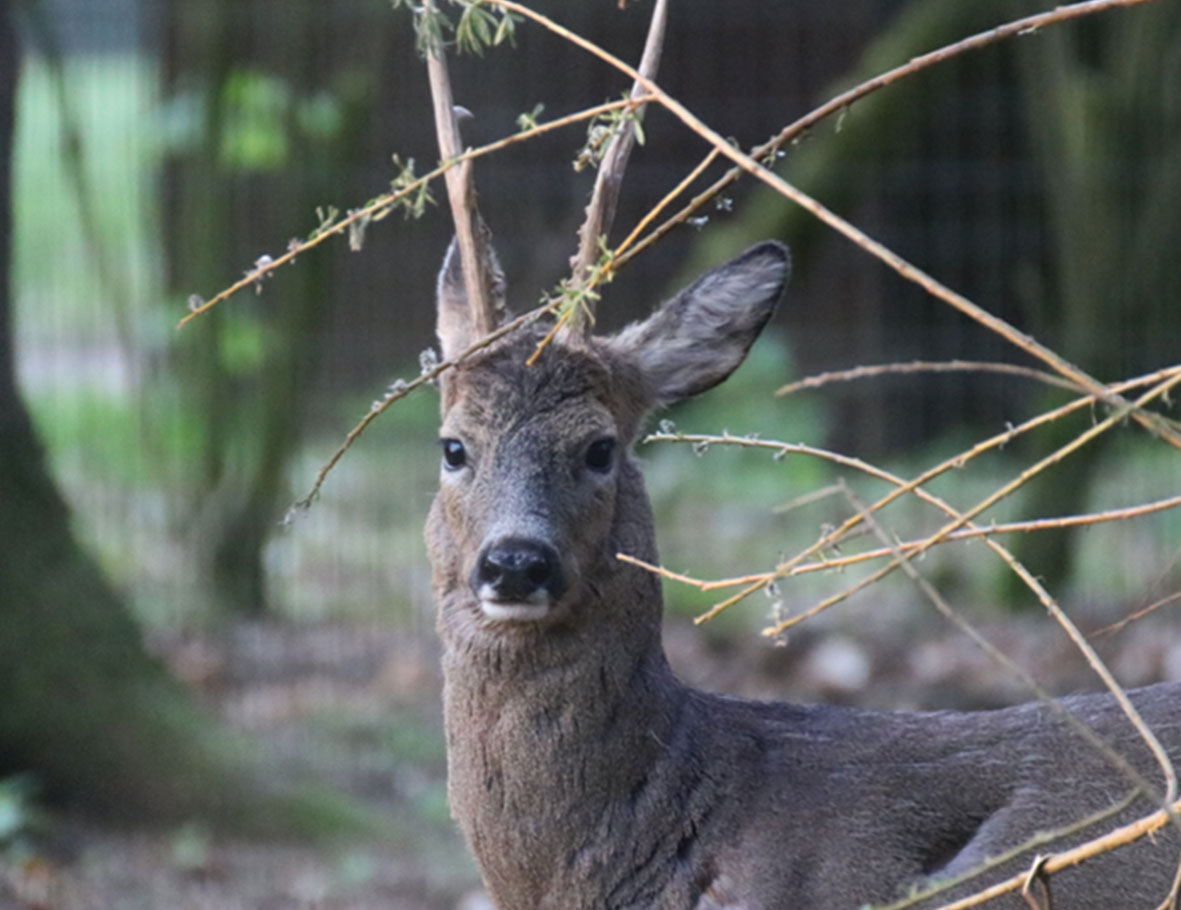Bavaria
How Well are Deer and Chamois Actually Doing?
The deer is considered a shy forest dweller, whereas the chamois, is seen as an alpine character species. However, increasing pressure caused by settlement and cultivation through humans is transforming the habitats as well as the food supply of both animal species. The consequences are currently being studied by the Wildlife Biology and Management working group under the direction of Prof. Dr. Andreas König of the Faculty for Nutrition at the Munich Technical University. The Academy supports this initiative.
Deer and chamois are both faced with changing living conditions: Due to intense climate change alone, the vegetation period has shifted forward by about 15 days. The deer as well as the chamois can adjust to these changes, however, to different degrees. While the deer generally has a high-energy and easily digestible diet and browses selectively, the chamois prefers a diet of herbaceous plants in summer with a higher content of raw protein. In winter on the other hand, the diet greatly consists of raw fiber.
Researchers at the TU Munich are currently examining these dietary differences and their consequences on the entire ecosystem more closely. The objective is to find out how the adaptability of the microbiome of the two animal species, specifically, the microflora of the digestive tract, changes in the different types of habitat.
The researchers conduct investigations in order to determine scientific data about wildlife feeding, the food supply and its energy utilization by these two species and compare the results with other typical regions in Bavaria. Because this project has an on-going focus on human-animal co-existence in an increasingly diminishing habitat, the Academy supported it in 2019.
Prof. Dr. Andreas König adds:
“Many thanks to the Academy for the Protection of Zoo Animals and Wildlife which enabled us to continue our analyses of microbiomes and the functionality in deer and chamois.
The results promise new insights into the nutrition ecology of both species and their and their ability to digest a diet with a high content of cellulose and lignin during winter time.”


